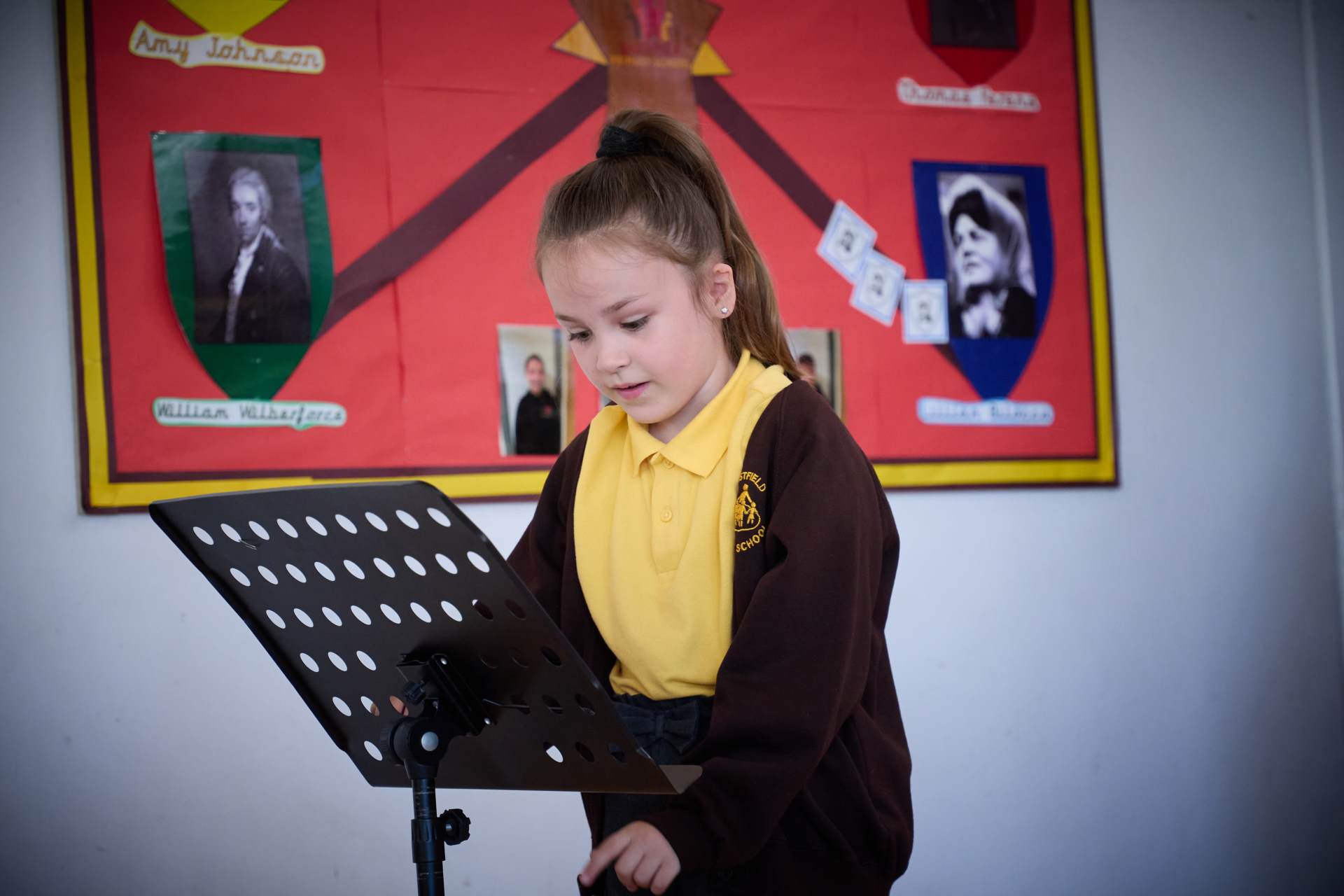Music
Intent
The National Curriculum for music aims to ensure that all pupils:
- Perform, listen to, review and evaluate music
- Be taught to sing, create and compose music
- Understand and explore how music is created, produced and communicated.
At Eastfield Primary School the intention is that children gain a firm understanding of what music is through listening, singing, playing, evaluating, analysing, and composing across a wide variety of historical periods, styles, traditions, and musical genres. We aim to develop a curiosity for the subject, as well as an understanding and acceptance of the validity and importance of all types of music. We are committed to ensuring children understand the value and importance of music in the wider community, and are able to use their musical skills, knowledge, and experiences to involve themselves in music, in a variety of different contexts.

Implementation
The music curriculum ensures students sing, listen, play, perform and evaluate. This is embedded in the classroom activities as well as the weekly singing assemblies, various concerts and performances, the learning of instruments, and the joining of a musical ensembles. The elements of music are taught in the classroom lessons so that children are able to use some of the language of music to dissect it, and understand how it is made, played, appreciated and analysed. In the classroom students learn how to play an instrument, from all four main instrument groups of wind, strings, percussion and keyboards. In doing so understand the different principle of each method of creating notes, as well as how to read basic music notation. In year 4 pupils benefit from 3 terms of bespoke teaching from Hull Music Service on a stringed instrument. They also learn how to compose focussing on different dimensions of music, which in turn feeds their understanding when listening, playing, or analysing music. Composing or performing using body percussion and vocal sounds is also part of the curriculum, which develops the understanding of musical elements without the added complexity of an instrument. The curriculum is carefully crafted to ensure experiences are broad and knowledge is sequenced so that over time they build up an understanding and appreciation of a wide range of musical genres.
Impact
Whilst in school, children have access to a varied music curriculum, which allows pupils to develop their interests further should they wish, through joining the school choir or taking up additional music lessons, learning to play an instrument. The curriculum helps to develop fundamental abilities such as: achievement, self-confidence, interaction with and awareness of others, and self-reflection. Music will also develop an understanding of culture and history, both in relation to pupils individually, as well as ethnicities from across the world. Children are able to enjoy music, in as many ways as they choose- either as listener, creator or performer.



